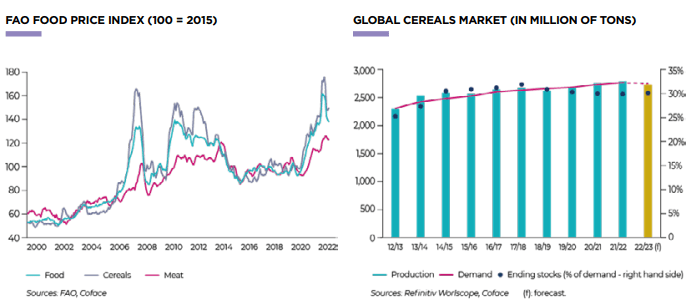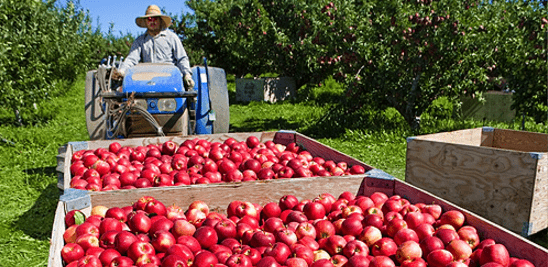Credit insurer French Coface projected that prices in the agri-food sector will continue to stabilize in the first part of 2023.
So far, the FAO food price index reached its highest value since September 2011 in May 2022.
Rising energy and fertilizer prices caused food prices to spike in the spring of 2022 and stabilize at high levels in the second half of the year.

Worse still, the global agri-food sector has suffered several shocks in the past year: geopolitical, climatic and biological.
Companies in the sector have had to deal with the consequences of the war in Ukraine, following the invasion of the country by Russia (two major grain exporters), various epizootics and extreme weather events.
The downturn in global activity should confirm this trend.
Agri-food sector
According to the 6th report of the Intergovernmental Panel on Climate Change (IPCC), extreme weather events are currently occurring at a rate not seen since the beginning of the 20th century, combined with intense weather events (La Niña/El Niño), the intensification of epizootics (avian flu, African swine fever) and the occasional appearance of invasive species.
To note: the IPCC was created in 1988 to provide comprehensive assessments of the state of scientific, technical and socio-economic knowledge on climate change, its causes, potential impacts and response strategies.
From Coface’s perspective, the agricultural segment will still be highly vulnerable to climatic and biological components in 2023.
Finally, difficulties in the agricultural sector are forcing European authorities to delay progress on «environmental» initiatives, while the slowdown in the production of certain cereals and rising production costs threaten food supply on the continent and worldwide.
Coface is a leader in credit insurance, risk management and economics.
In general, Coface’s services and solutions protect and assist companies in making credit decisions that enable them to improve their commercial development in both domestic and export markets.
![]()

